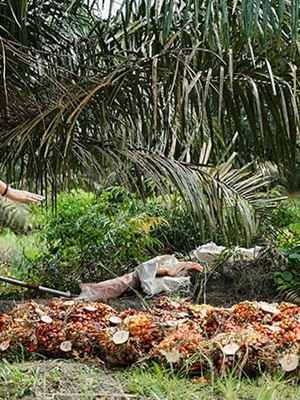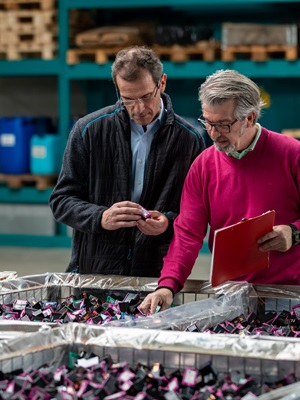
The Association of Southeast Asian Nations (ASEAN) as a regional body is at a crossroads, despite its sunny beaches and thriving industries. This is a depressing fact. The foundation of its economic miracle is at risk, along with pristine ecosystems due to the numerous environmental challenges that are there. However, education is a ray of hope amidst these difficulties. In addition to protecting the environment, ASEAN can usher in a new era of green growth and prosperity by equipping its people with the knowledge and skills necessary for a sustainable future. In order to move ASEAN towards a prosperous and sustainable future, this article examines the transformative potential of education in combination with strong leadership, corporate collaborations, and targeted government incentives.
I. Introduction: The ASEAN Sustainability Imperative
There is so much energy and promise in the ASEAN region. Environmental issues, however, are posing a growing danger to this advancement. Rising sea levels, variable weather patterns, and an increase in the frequency of extreme weather occurrences are all effects of climate change. If climate change is not addressed, a 2020 assessment by the Asian Development Bank predicts that it will cost the region an astounding $1.7 trillion a year by 2030. The situation is made worse by the unsustainable use of resources, as plastic pollution and deforestation rates rise to frightening heights.
However, among these environmental dangers is a unique opportunity. ASEAN has an opportunity to lead the way in innovation and green growth as the world moves towards a sustainable economy. By 2030, the ASEAN green economy is expected to generate $3 trillion in value and 9 million new employment, according to a 2018 analysis by the Business Chamber of Singapore. By adopting sustainability, ASEAN countries can protect the environment and open up new opportunities for job growth and economic success.
II. Education for Transformation
A. Leadership Renewal: Championing Sustainability from the Top Down
Supplying the upcoming labour force is just one aspect of the problem. An educational institution's own paradigm must change for a sustainability pivot to be successful. Leadership that embraces sustainability as a core value—rather than merely an afterthought—is needed for this. Leaders in education who support sustainability can set an example for employees and students, encouraging an eco-friendly culture.
Still, it is insufficient to merely advocate for sustainability. To convert these ideas into workable plans, leaders also require the skills and resources. It is essential to spend money on internal sustainability training for administrators. Topics covered in this kind of instruction could include:
• Applying sustainable practices and policies to institutional practices.
• Using waste reduction programmes, sustainable procurement techniques, and energy efficiency measures to green operations.
• Creating creative sustainability programmes in collaboration with businesses and non-governmental organisations.
• Monitoring the sustainability performance of the organisation and reporting on it.
In this regard, a number of local universities are already exhibiting leadership. For instance, Mahidol University in Thailand has set up a special Office of Sustainability Education that offers staff and faculty guidance on incorporating sustainability into their research and teaching endeavours. In a similar vein, Vietnam National University in Hanoi has launched a comprehensive green campus strategy that includes trash reduction plans, energy-saving techniques, and green building requirements for newly constructed buildings.
Educational institutions may set an example for environmental stewardship by giving internal sustainability training and leadership renewal top priority. The beliefs and habits of future generations will be shaped by this leadership, which will also have an impact on internal operations.
B. Real-World Partnerships: Bridging the Knowledge-Action Gap
A link between academic understanding and practical application is necessary. To guarantee that sustainability education yields measurable outcomes, it is imperative to establish robust partnerships between academic institutions and corporations. With the help of these collaborations, educational programmes may be customised to meet the demands of the industry, giving graduates the precise information and abilities they need to make an instant impact on the job.
Collaboration can take many forms:
• Joint curriculum development: Universities and corporations can co-create sustainability-focused courses that integrate theoretical knowledge with practical industry applications.
• Internships and work-integrated learning programs: By offering internship opportunities or embedding sustainability modules within corporate training programs, students gain valuable hands-on experience and industry insights.
• Joint research and development (R&D): Collaboration on “blue sky” or active research projects allows universities to leverage corporate resources and expertise to tackle real-world sustainability challenges and iterate contextualise solutions
These kinds of alliances have several advantages. Businesses have access to a pool of highly qualified recent graduates who understand sustainability concepts. Real-world case studies and industry insights help educational institutions improve their curricula. In the end, these collaborations help to create a workforce that is more knowledgeable about sustainability and skilled, which spurs innovation and speeds up the area's green transition.
Within ASEAN, there are already a number of effective instances of industry-academia cooperation on sustainability projects. A renowned agribusiness company, Wilmar International, and Institut Teknologi Bandung (ITB) in Indonesia collaborated to create a Master's programme in Sustainable Palm Oil Management. Graduates of this programme will have the knowledge and abilities needed to operate palm oil farms in a way that respects both the environment and society.
Analogously, Mapúa University and Nestle Philippines work together in the Philippines to provide a specialised training programme on waste management and sustainable food production for Nestle personnel. These initiatives highlight the enormous potential for industry-academia cooperation to promote constructive change in a range of fields.
ASEAN countries may guarantee that their graduates have the theoretical understanding of sustainability as well as the practical abilities required to steer the region's transition to a more sustainable future by establishing strong partnerships and coordinating educational programmes with industry demands.
C. Systems Thinking & Skill Development: Cultivating a Green Workforce
In addition to a comprehensive grasp of interrelated systems, a workforce with the particular skills required for the green economy is also necessary for a successful sustainability transition. Educational institutions need to give special attention to cultivating competence in a few crucial areas, building on the basis of systemic thinking laid forth in Singapore's SkillsFuture initiative:
Green Job Training:
Collaboration with industry partners allows for the development of targeted training programs that equip graduates with the necessary technical skills for in-demand green jobs. Examples include:
o Solar Photovoltaic (PV) Installation and Maintenance: Co-created with renewable energy companies, these programs train graduates in the installation, operation, and maintenance of solar PV systems, a rapidly growing sector in ASEAN.
o Circular Economy Technologies: Collaboration with waste management companies can lead to training programs on waste-to-resource technologies, composting techniques, and product life-cycle analysis, crucial skills for transitioning towards a circular economy.
o Green Building Design and Construction: In partnership with construction companies and architecture firms, educational institutions can offer programs focused on energy-efficient building design, sustainable building materials, and LEED certification standards.
o Entrepreneurship Incubation and acceleration: It is a common misconception that our shift towards sustainability won't have an impact on the entrepreneurial path. All firms must integrate sustainability into their company vision and value chain in the future. Instilling a sustainable attitude is the best approach to begin generating a new generation of SMEs and corporate unicorns, as it will open up new business opportunities and networks. The first step in doing this will be for educational institutions under the correct leadership to switch from "building back better" to "building back differently."
Business Model Innovation for Sustainability:
Beyond technical proficiency, it is essential to develop the next generation of corporate executives who recognise the financial benefits of sustainability. Sustainability ideas should be incorporated into business curricula in educational programmes, with themes like:
o Environmental, Social, and Governance (ESG) Investing: Encouraging sustainable investments and promoting ethical business practices requires preparing the next generation of business leaders to include environmental, social, and governance (ESG) factors into investment decisions.
o Life-Cycle Costing: It is crucial to comprehend the financial and environmental effects of products across their whole lifecycle in order to encourage sustainable product design and minimise waste.
o Circular Economy Business Models: A new generation of entrepreneurs that drive sustainable innovation across industries will be fostered by educating students on creative business models that maximise resource utilisation and minimise waste.
ASEAN nations may enable their workforce to actively participate in discovering solutions to environmental concerns by investing in the development of industry-specific skillsets and systemic thinking. Maintaining strong connections with enterprises will be necessary to ensure that the curriculum is relevant and that graduates are employable in the green economy.
III. Aligning Incentives for Impact: Fuelling Change with Smart Policies
An entire systemic movement towards sustainability cannot be fuelled by education alone. Encouraging firms to embrace sustainable practices and individuals to make eco-friendly decisions requires the implementation of effective government regulations. The effectiveness of targeted incentives is exemplified by a number of successful ASEAN policy initiatives:
• Financial Incentives for Green Businesses: A number of ASEAN countries have introduced monetary incentives to incentivise companies to allocate resources towards sustainable technology and practices. For instance, businesses who invest in renewable energy projects or adopt energy-efficient technologies might receive tax incentives from Thailand's Board of Investment. Vietnam offers tax breaks and low-interest financing to companies who use green building techniques. By providing a strong financial argument for sustainability, these incentives persuade companies to adopt environmentally friendly practices.
• Educational Grants for Sustainability-Focused Programs: Financial support that is specifically directed towards the development of a workforce competent in sustainability is necessary. Numerous ASEAN countries provide grants and scholarships intended exclusively for sustainability-related initiatives. But giving co-created programmes with industry partners top priority is essential to optimising impact. By guaranteeing that graduates have the particular skills and knowledge needed by the green job market, these cooperative programmes improve employability and facilitate a more seamless shift to a sustainable economy.
• Regional Collaboration on Knowledge Sharing: Sustainability has both opportunities and difficulties that are shared by all ASEAN countries. ASEAN can expedite collective success by promoting regional engagement on information sharing and best practices. Knowledge-sharing platforms might concentrate on disseminating effective policy proposals, endorsing cutting-edge technologies, and enabling cooperation between corporations and academic institutions in the area. By taking a regional approach, ASEAN countries may benefit from one another's experiences and work together to map out a course for a future that is more sustainable.
Through deliberate synchronisation of education with specific incentives, ASEAN countries can generate a potent amalgamation that propels systemic transformation. While educational initiatives guarantee the availability of a trained labour force capable of converting sustainable practices into workable solutions, financial incentives can serve as a catalyst for firms to adopt these practices. Regional cooperation in information exchange will also promote international education and hasten the area's transition to a greener economy.
IV. Cultivating a Culture of Sustainability: Beyond Education and Incentives
A successful shift to sustainability goes beyond providing workers with the necessary training and education. It requires a profound shift in cultural norms in order to promote a strong love of the natural world and a shared sense of responsibility for the environment. This change is mostly dependent on incentives and education.
Education as a Catalyst for Change:
Educational institutions can play a pivotal role in fostering a culture of sustainability by:
• Integrating sustainability principles across the curriculum: It is not enough to limit environmental literacy to science classrooms. A comprehensive awareness of the interdependence of environmental, social, and economic challenges can be fostered by including sustainability themes into courses like economics, history, and literature. Embedding sustainability concepts across disciplines enable participants to appreciate the multifaceted and pervasiveness of sustainability holistically.
• Promoting experiential learning: Attending field visits to nature reserves, community gardens or sustainable businesses allows participants to get firsthand knowledge about the natural world and the advantages and challenges of sustainability. Gaining an understanding of sustainability-related use cases may inspire these participants to incorporate sustainable ideas into their daily lives and careers. The participants must have their own "Eureka" moment when they make their own discovery to problem solving and implementation.
• Encouraging civic engagement: Involving participants in sustainability initiatives or environmental projects gives them the tools they need to become proactive change makers and gives them a sense of control over the future of the environment in the area. This enhances the possibility of further advocacy and creating a sense of empowerment for the participants.
Incentives for Collective Action:
Targeted incentives can further encourage people and organisations to adopt sustainable behaviours, even while education sets the groundwork for a societal shift. Among the examples are:
• Green labelling and certification programs: Programmes supported by the government that identify and honour environmentally conscious companies can encourage sustainable production methods and influence customer decisions.
• Subsidies for sustainable products: Financial incentives for electric cars, organic food, and energy-efficient equipment can increase accessibility to sustainable options and promote their wider adoption.
• Community-based initiatives: A sense of shared responsibility for environmental well-being can be fostered and people can be inspired to actively participate in building a more sustainable future by government funding for community gardens, composting initiatives, or micro-grids powered by renewable energy sources.
Engaging All Stakeholders:
Individuals and corporations must take an active role in bringing about a fundamental shift in cultural beliefs. Businesses can become agents of positive change by promoting a sustainable culture inside their organisations. This comprises:
• Including sustainability in mission and values statements of corporations.
• Putting in place environmental management programmes and establishing challenging sustainability targets.
• Fostering staff involvement through training efforts and internal sustainability projects.
Building a sustainable culture in ASEAN requires coordinating education with specific incentives and encouraging participation from all parties involved. This cultural change will be the cornerstone of the region's successful and long-lasting sustainability pivot, along with a workforce that is skilled and prepared to handle environmental concerns.
V. Conclusion: A Sustainable ASEAN: A Collective Endeavor
Given the environmental issues that ASEAN is currently confronting, a quick and decisive shift towards a sustainable future is required. The long-term economic prosperity and well-being of the region are seriously threatened by climate change, resource depletion, and pollution. But this catastrophe also offers a once-in-a-lifetime chance. ASEAN can open the door to a future of green growth, job creation, and environmental resilience by embracing sustainability.
Education is the key to unlocking this future. Strong leadership in education that is devoted to sustainability may provide workers with the knowledge and systemic thinking required for a green economy. Through establishing robust collaborations with businesses, these educational establishments can guarantee that their graduates have the particular abilities and understanding that employers demand. Targeted government incentives can encourage companies and individuals to make environmentally friendly decisions even more. These might range from financial support for industry collaboration to subsidies for sustainable products.
The establishment of a sustainable ASEAN necessitates teamwork. It is an investment in the future of the region to make these kinds of investments in education leadership, industrial partnership, and focused incentives. Through the cultivation of a new generation of sustainability advocates, the promotion of an environmentally conscious culture, and the establishment of favourable conditions for environmentally conscious enterprises, the ASEAN nations have the potential to usher in a sustainable, equitable, and inclusive period of prosperity. Now is the moment to take action. Together, let's take advantage of this chance to steer ASEAN towards a prosperous and sustainable future.
Note: PHOTO BY DOUG LINSTEDT ON UNSPLASH
Posted 29/03/2024

















